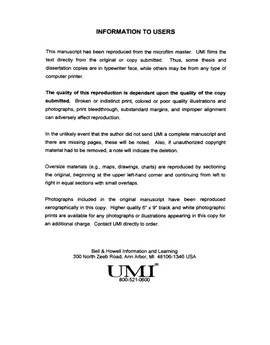| dc.contributor.advisor | Savage, William W., Jr., | en_US |
| dc.contributor.author | Lovegrove, Michael Warren. | en_US |
| dc.date.accessioned | 2013-08-16T12:30:45Z | |
| dc.date.available | 2013-08-16T12:30:45Z | |
| dc.date.issued | 1999 | en_US |
| dc.identifier.uri | https://hdl.handle.net/11244/5888 | |
| dc.description.abstract | Douglas Henry Johnston served as governor of the Chickasaw Nation for some four decades. Johnston presided from 1898 to 1902, was re-elected in 1904, and served until his death on June 28, 1939. He served longer than any chief executive of an Indian nation in the history of Oklahoma. During the first four decades of the twentieth century, the Chickasaw government was dissolved, and their assets were liquidated. Under Johnston's leadership, the Chickasaw people survived these turbulent times. | en_US |
| dc.description.abstract | Johnston surrounded himself with the right people to carry out his agenda. He had the uncanny ability to judge a man's character. In the late 1890s, he hired William H. Murray to rewrite tribal laws that were rejected by the federal government. He later employed the firm of Mansfield, McMurray, and Cornish as tribal attorneys, giving Johnston the leverage to deal with the federal government for passage of a Supplemental Agreement in 1902. The legislation created a Citizenship Court that rejected some 4,000 fraudulent applicants admission on the tribal rolls, saving the tribe $20,000,000. Johnston played a substantial role in the "Choate Case, " decided in 1912, that prevented the state of Oklahoma from levying ad valorem taxes on Chickasaw and Choctaw land. Had the tax levy succeeded, many original allottees would have lost their land because of their inability to pay the taxes. He also helped pass legislation that protected 160 acre homesteads for an additional twenty-five years. In 1924, he celebrated the passage of a bill that enabled the Chickasaws to sue the federal government in the United States Court of Claims and recover funds that the tribe believed had been unjustly taken from their treasury. Throughout his life, Johnston earned the respect and friendship of federal officials, tribal chieftains, and leaders in Oklahoma state government. He was a tough negotiator, who wanted to get the best possible terms for his people. Douglas Johnston's administration provided the stability essential to successful compliance with federal policies, which in turn assured both the survival of the Chickasaw people and the persistence of Chickasaw culture. | en_US |
| dc.format.extent | x, 263 leaves ; | en_US |
| dc.subject | Sociology, Ethnic and Racial Studies. | en_US |
| dc.subject | History, United States. | en_US |
| dc.subject | Johnston, Douglas H., b. ca. 1858. | en_US |
| dc.subject | Chickasaw Indians. | en_US |
| dc.title | Douglas Henry Johnston and the Chickasaw Nation, 1898--1939. | en_US |
| dc.type | Thesis | en_US |
| dc.thesis.degree | Ph.D. | en_US |
| dc.thesis.degreeDiscipline | Department of History | en_US |
| dc.note | Chair: William W. Savage, Jr. | en_US |
| dc.note | Source: Dissertation Abstracts International, Volume: 60-11, Section: A, page: 4152. | en_US |
| ou.identifier | (UMI)AAI9949714 | en_US |
| ou.group | College of Arts and Sciences::Department of History | |
